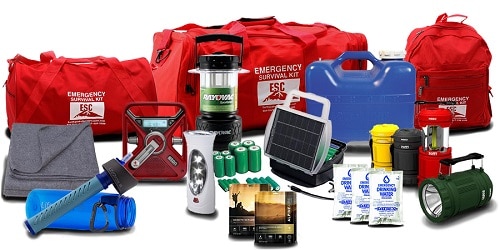Consider the supplies you may need to last you and your family for at least three to seven days when creating a home emergency survival kit. In the event of emergencies that may require you to leave your home quickly, such as a wildfire, prepare your kit well in advance and keep it in an easily accessible location so that if you need to evacuate with little notice, you can take essential items with you.
For other emergencies that may require a stay at home for several days, such as a blizzard, you may want to collect supplies when a storm is forecast for the first time and monitor the storm closely to ensure you have everything you need.
Whether you’re hunkering down to a storm at home, scrambling to evacuate to get to safety, or facing the possibility of being stranded in your vehicle during stormy weather, one thing is certain: having the right provisions can help make a challenging scenario safer.
Below are some of the key survival kit considerations to fit these potential emergencies. Consider how each of them can adapt and arm yourself appropriately to these scenarios.
- One gallon of water, per person, per day.
- Non-perishable and canned foods, along with a non-electric can opener.
- Sanitation and personal hygiene items.
- Flashlights with extra batteries.
- Battery-powered or hand-crank radio, with extra batteries if relevant.
- Extra clothing and blankets.
- A first-aid kit.
- Emergency cash and checks as credit cards may not be dependable in a power outage.
- Chargers for electronics, including vehicle chargers.
- A whistle to signal for help.
- Duct tape.
- Copies of personal documents, including a home inventory list, insurance policies and other important legal and financial documents.
- Bug spray (depending on location and climate).
- Hand and foot warmers (pending climate).
- Pen and notebook to keep notes such as important phone numbers, in case the power is out and electronic devices are not working.
- Baby supplies such as diapers, wipes, infant formula, food and bottles.
- Pet food and extra water for your pets.
- At least a three- to seven-day supply of any daily medication for family members and pets. 1
Sources:
1 www.travelers.com




